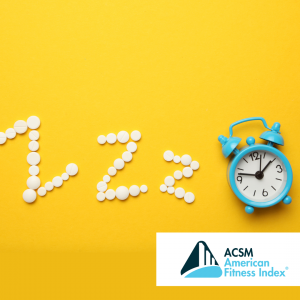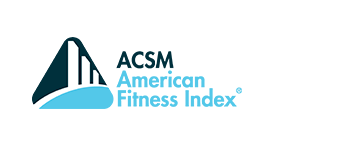
Daily sleep and physical activity each have individual impacts on a variety of health outcomes and risk factors (1,2,3). There may be reciprocal relationships between sleep and physical activity, but the extent of these relationships remains unclear. Common questions include: Does sleep duration affect physical activity intensity or duration? How much sleep loss can one tolerate and not affect physical activity? What is the best time of day to exercise? Given my time constraints, should I sleep or exercise? Researchers do not yet have all the answers to these questions, but the answer to the final question may simply be “both.”
Sleep & Health
Adequate sleep is necessary for all major physiological systems, including immune, endocrine and metabolic function (4,5,6). Meeting sleep guidelines (7-9 hours per night for most adults [6]) is consistently associated with beneficial physical health outcomes, including but not limited to, enhanced cognition, decreased risk for cardiovascular disease and Type 2 diabetes, and prevention of some types of cancer (5). Moreover, meeting sleep guidelines is associated with decreased psychological distress, anxiety and depression, longevity, and health-related quality of life (7). Of concern, data from the 2004-2017 National Health Information Survey and 2014 United States Behavioral Risk Factor Surveillance Survey suggest 30-35% of U.S. adults obtain less than the recommended seven hours of sleep per night (8,9). Moreover, an estimated 56% of U.S. adults live with sleep disorders, which is higher than similarly developed regions of the world (10).
The negative impacts of sleep deprivation and sleep restriction on several health outcomes have been well documented (11,12). While many of us may not experience sleep deprivation (e.g., total loss of sleep) or chronic sleep restriction (e.g., partial nighttime sleep loss over multiple weeks, months or years), acute sleep restriction is a relatively common experience. Acute sleep restriction is commonly defined in experimental studies as a reduction in total sleep time to less than six hours of sleep per night over a single night or several nights. Obtaining less than six hours of sleep on just a single night impairs following-day cognition, including negative effects on memory (13,14), inhibitory control (15), executive function (13) and reaction time (14,16,17,18).
Sleep & Physical Activity
Similar to the health benefits associated with meeting sleep recommendations, meeting the 2018 ACSM Physical Activity Guidelines can reduce the risk of developing at least seven of the 10 most common chronic diseases in the United States (19). However, only 51% of American adults meet aerobic physical activity guidelines (20). Given the large portion of the population that does not meet sleep or physical activity guidelines, the next logical question to ask is “What are the relationships between these physical behaviors?”
Most of the evidence exploring the reciprocal relationship between sleep and physical activity comes from cross-sectional and laboratory-based exercise studies (e.g., effect of sleep restriction on exercise performance). The results of cross-sectional studies are largely inconclusive, which is likely due to the wide range of subjective measurements used. Conversely, laboratory-based studies have more commonly demonstrated a negative impact of sleep restriction on subsequent exercise performance (21,22). Sleep restriction appears to be most detrimental for subsequent sub-maximal aerobic performance bouts lasting more than a couple of minutes.
More recent research has attempted to extend these previous findings by experimentally altering sleep duration to better understand how one behavior affects another (e.g., how does a night of short sleep [3 hours] affect subsequent days of physical activity?). Some studies have demonstrated no effect of sleep restriction on light, moderate or vigorous physical activity (23,24), while others reported a reduction in physical activity (25,26,27). One comprehensive study explored the effects of two different types of sleep restriction (delayed-onset sleep restriction [going to bed in the middle of the night] and early awakening sleep restriction [waking up in the middle of the night]) on accelerometer-derived physical activity compared to a normal night of sleep in healthy adult men (26). Interestingly, the results indicated a significant reduction in total physical activity only under the early awakening sleep restriction condition, which was driven by reduced vigorous-intensity physical activity. These data suggest that the timing of sleep restriction, as well as physical activity intensity, are important considerations when understanding the relationships between these physical behaviors.
While there are clear benefits to meeting individual sleep and physical activity guidelines, several questions about the relationships between these physical behaviors remain. A better understanding of the complex relationships between sleep, physical activity and sedentary behaviors will provide clinicians and health professionals with tools to better council patients from a holistic health perspective.
Authors: John D. Chase, M.S., and John R. Sirard, Ph.D.
References
- Dzierzewski JM, Buman MP, Giacobbi PR, Roberts BL, Aiken-Morgan AT, Marsiske M, McCrae CS. Exercise and sleep in community-dwelling older adults: Evidence for a reciprocal relationship. J Sleep Res. 2014;23:61-68. doi:10.1111/jsr.12078.
- Chennaoui M, Arnal PJ, Sauvet F, Léger D. Sleep and exercise: A reciprocal issue? Sleep Med Rev. 2015;20:59-72. doi:10.1016/j.smrv.2014.06.008.
- Mead MP, Baron K, Sorby M, Irish LA. Daily associations between sleep and physical activity. Int J Behav Med. 2019;26:562-8. doi:10.1007/s12529-019-09810-6.
- Santos RVT, Tufik S, De Mello MT. Exercise, sleep and cytokines: Is there a relation? Sleep Med Rev. 2007;11:231-9. doi:10.1016/j.smrv.2007.03.003.
- Watson NF et al. Joint consensus statement of the american Academy of Sleep Medicine and Sleep Research Society on the recommended amount of sleep for a healthy adult: Methodology and discussion consensus. Sleep. 2015;38:1161-83.
- Hirshkowitz M et al. National Sleep Foundation’s sleep time duration recommendations: Methodology and results summary. Sleep Heal. 2015;1:40-43. doi:10.1016/j.sleh.2014.12.010.
- Loprinzi PD, Joyner C. Meeting sleep guidelines is associated with better health-related quality of life and reduced premature all-cause mortality risk. Am J Heal Promot. 2018;32;68-71. doi:10.1177/0890117116687459.
- Sheehan CM, Frochen SE, Walsemann KM, Ailshire JA. Are U.S. adults reporting less sleep? Findings from sleep duration trends in the National Health Interview Survey, 2004-2017. Sleep. 2019;42:1-8. doi:10.1093/sleep/zsy221.
- Liu Y, Wheaton AG, Chapman DP, Cunningham TJ, Lu H, Croft JB. Prevalence of healthy sleep duration among adults – United States, 2014. CDC Morb Mortal Wkly Rep. 2016;65:137-41. doi:10.15585/mmwr.mm6506a1.
- Léger D, Poursain B, Neubauer D, Uchiyama M. An international survey of sleeping problems in the general population. Curr Med Res Opin. 2008;24:307-17. doi:10.1185/030079907X253771.
- Banks S, Dinges DF. Behavioral and physiological consequences of sleep restriction. J Clin Sleep Med. 2007;3:519-28. doi:10.1055/s-0029-1237117.
- Vgontzas AN, Zoumakis E, Bixler EO, Lin H, Follett H, Kales A, Chrousos GP. Adverse effects of modest sleep restriction on sleepiness, performance, and inflammatory cytokines. J Clin Endocrinol Metab. 2004;89:2119-26. doi:10.1210/jc.2003-031562.
- Lo JC, Ong JL, Leong RLF, Gooley JJ, Chee MWL. Cognitive performance, sleepiness, and mood in partially sleep deprived adolescents: The need for sleep study. Sleep. 2016;39:687-98. doi:10.5665/sleep.5552.
- Alhola P, Polo-Kantola P. Sleep deprivation: Impact on cognitive performance. Neuropsychiatr Dis Treat. 2007;3:553-67. doi:10.1016/j.smrv.2012.06.007.
- Fallone G, Acebo C, Arnedt TA, Seifer R, Carskadon MA. Effects of acute sleep restriction on behavior, sustained attention, and response inhibition in children. Percept Mot Skills. 2001;93:213-29.
- Rossa KR, Smith SS, Allan AC, Sullivan KA. The effects of sleep restriction on executive inhibitory control and affect in young adults. J Adolesc Heal. 2014;55:287-92. doi:10.1016/j.jadohealth.2013.12.034.
- Van Dongen H, Maislin G, Mullington J, Dinges D. The cumulative cost of additional wakefulness: Dose-response effects on neurobehavioral functions and sleep physiology from chronic sleep restriction and total sleep deprivation. Sleep. 2003;26:117-26. doi:10.1001/archsurg.2011.121.
- Taheri M, Arabameri E. The effect of sleep deprivation on choice Reaction time and anaerobic power of college student athletes. Asian J Sports Med. 2012;3:15-20.
- Ward BW, Schiller JS, Goodman RA. Multiple chronic conditions among us adults: A 2012 update. Prev Chronic Dis. 2014;11:4-7. doi:10.5888/pcd11.130389.
- Schiller JS, Lucas JW, Peregoy JA. Summary health statistics for U.S. population: National health interview survey, 2011. National Center for Health Statistics. Vital Heal Stat. 2012;10:1-218.
- Fullagar HK, Skorski S, Duffield R, Hammes D, Coutts AJ. Sleep and athletic performance: The effects of sleep loss on exercise performance, and physiological and cognitive responses to exercise. Sport Med. 2014:1-26. doi:10.1007/s40279-014-0260-0.
- Chase JD, Roberson PA, Saunders MJ, Hargens TA, Womack CJ, Luden ND. One night of sleep restriction following heavy exercise impairs 3-km cycling time-trial performance in the morning. Appl Physiol Nutr Metab. 2017:42. doi:10.1139/apnm-2016-0698.
- Romney L, Larson MJ, Clark T, Tucker LA, Bailey BW, LeCheminant JD. Reduced sleep acutely influences sedentary behavior and mood but not total energy intake in normal-weight and obese women. Behav Sleep Med. 2016;14:528-38. doi:10.1080/15402002.2015.1036272.
- Brondel L, Romer MA, Nougues PM, Touyarou P, Davenne D. Acute partial sleep deprivation increases food intake in healthy men. Am J Clin Nutr. 2010;91:155-9. doi:10.3945/ajcn.2009.28523.
- Schmid SM, Hallschmid M, Jauch-Chara K, Wilms B, Benedict C, Lehnert H, Born J, Schultes B. Short-term sleep loss decreases physical activity under free-living conditions but does not increase food intake under time-deprived laboratory conditions in healthy men. Am J Clin Nutr. 2009;90:1476-82. doi:10.3945/ajcn.2009.27984.
- Wilms B, Kuhr M, Chamorro R, Klinsmann N, Spyra D, Mölle M, Kalscheuer H, Schultes B, Lehnert H, Schmid SM. Chronobiological aspects of sleep restriction modulate subsequent spontaneous physical activity. Physiol Behav. 2020;215:112795. doi:10.1016/j.physbeh.2019.112795.
- Bromley LE, Booth JN, Kilkus JM, Imperial JG, Penev PD. Sleep restriction decreases the physical activity of adults at risk for type 2 diabetes. Sleep. 2012;35:977-84. doi:10.5665/sleep.1964.


